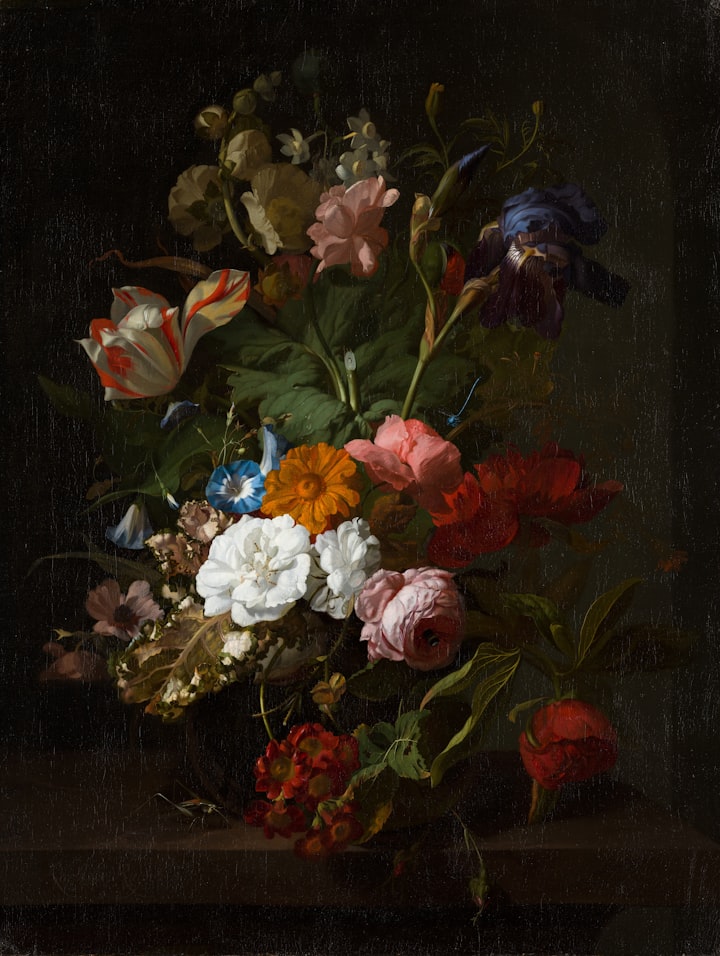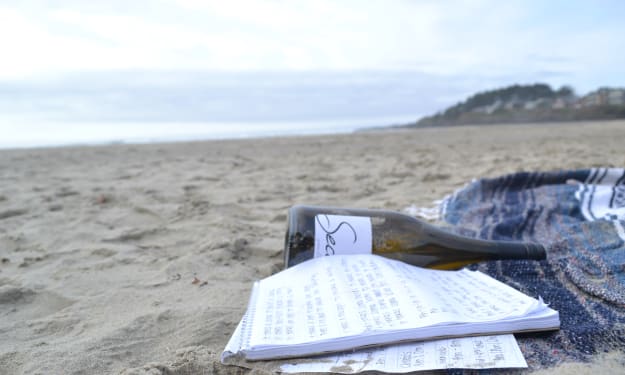Cecily was a young woman who lived within the lines. She colored within the lines, parked within the lines; she followed recipes to the letter and she never rolled through stop signs. She made her bed up every morning and she took her makeup off each night. At the age of twenty-eight, Cecily still stepped over every crack in the sidewalk. She was not a religious woman, but rather a methodically fearful one, and she preferred to avoid any problems that could be prevented by behaving as she had been taught to behave.
Cecily was not blindly fearful; her anxious nature had been validated by every year of her life as she understood it. Her youth had taught her to be afraid of upsetting her mother, which in turn taught her to be afraid of many things. Her adolescence had taught her to be afraid of pleasure. Her early adulthood was teaching her to be afraid of freedom. But still Cecily practiced probing her fears, testing them to discover where the lines lay that she ought to live inside.
Once, she stole a tube of chapstick from the grocery store, to prove to herself that she could. She worked up the courage for a few minutes when the thought struck her, a thought planted and tended by reckless ex-boyfriends and the wayward Marxists sprinkled among colleagues whose lines of thinking she reluctantly admired. She placed the chapstick in her pocket, purchased the rest of her groceries, and walked out of the store. Afterwards, although no sirens sounded and no one chased her to the parking lot brandishing handcuffs, Cecily thought with panic of how she would certainly be disbarred for this transgression should anyone find out, her career as a lawyer ruined. She had yet to enter law school. In this way, she calculated risks and ran little tests, allowing the manageable consequences of her measured actions to present themselves to her in hindsight. She would extrapolate from there the aftermath of more serious actions, ones that she would never take.
Cecily’s life, like her mind, was sharp. She took pride in the keenness of its edges, like a porcupine admiring its spikes. And, like a porcupine, Cecily was often alone. When she did enter law school, she ran her careful algorithms to select the best program for her purposes. It was a school across the country from the beautiful town in which she now lived, a town in which she had crafted a scientifically beautiful life. But she considered the move no great sacrifice, because it followed the math. She looked forward to burying herself in the libraries, to staying in on Friday nights, to drinking tea and not whiskey. She had learned to be afraid of whiskey. She had never been afraid of libraries.
When she arrived in the little college town where she was to study, she found the perfect apartment in her price range. She nested for a few weeks, and then began her schoolwork. At twenty-eight, Cecily was older than many of her classmates. She was at first inclined to pity them, as they seemed so unafraid still, and she, anticipating the impending consequences of their youth, was afraid for them. But she soon realized that her colleagues were similarly afraid as she had been when she was their age; they only had fewer data. So instead she felt a sense of community with her younger cohort. Like Siddhartha, they would learn their lessons themselves. It was not her duty to prevent their learning.
There was a girl around campus named Amelia, who was interested in friendship. Amelia was twenty-six, closer in age and experience to Cecily than many of the others were. Cecily was wise enough to know that friendships should be beneficial, and she allowed herself to grow cautiously close to Amelia. They would spend two, maybe three hours together at a time, and Cecily appreciated how quiet Amelia made her feel.
Amelia was bubbly. She would talk about the men she was interested in, about the wines that she liked, about the musicians she admired. Cecily would listen, and talk about the law. They would go to lunch, or to the art museum. Amelia was drawn to the abstract paintings and the modern mosaics, while Cecily preferred the classics: embattled men wielding swords on horseback, dauntless ships riding the horizons of stormy seas, tables strewn with fruit and gilded candlesticks. Cecily hailed the study of technique, the practice of perfection. Amelia seemed already to know broadly what was right, unimpressed by ceremony.
Cecily grew to be fascinated by Amelia. When misfortune befell her—an unsavory heartbreak, a harsh criticism, a runaway dog or a crash on her bike—Amelia seemed to consider the offending events as mere facts of life. She saw immediate consequences, but not possible ones; misfortunes began and ended for Amelia with the facts of their unfolding.
The function of Cecily’s every calculation was to produce happiness, both by avoiding misfortunes and by engineering serenity. Because Amelia seemed so happy, Cecily began to study for herself the negligible lines within which Amelia lived. She would run her little tests, electing one day not to make up her bed, another night to sleep in her makeup, another to drink whiskey instead of tea. But, always, she landed back where she started: certain that her way was best. An unkempt room or a careless night on the town would cost her hours of productive studying; her mind would feel jumbled and her headaches more severe. It frustrated her to watch Amelia suffer only very acutely from the consequences of her choices, while she, Cecily, felt her own decisions reverberate endlessly across the years of her life, through her present and into her future.
And so Cecily withdrew from another friendship, bothered by the challenges Amelia posed to her way of being. If anything, the borders of her life contracted. She nestled deeper into them, so as not to be tempted to backtrack on any more of her hard-fought wisdom. But Amelia did not understand this withdrawal. She loved Cecily’s rigid ways; they made her feel successful, to be in proximity to such perfection. She saw on the surface a wise and measured woman whose life was clean and healthy. She revered Cecily’s discipline, although she sometimes wished that her friend would allow herself a fault or two.
As the months passed, Amelia found herself less and less able to reach Cecily. She would rush away after class, speaking only a few words to her friend before scurrying off with her books. She would not answer her phone. Amelia found her one day in the art museum, staring intently at a still life. She spoke serenely to Amelia without turning her head from the painting.
“There is such peace in certainty,” she said. Amelia observed the severity of her ponytail, the crispness of her black pressed pants, the precision of her words. Amelia began to cry.
“Cecily, I miss you,” she begged. Cecily, without moving, allowed Amelia’s outstretched hand to touch her shoulder.
“I miss you too,” Cecily calculated. “I’ve just been so busy.” She turned to Amelia, smiled, and started towards the exit. “I’ll catch you in class!” And away she walked.
When Cecily arrived home to her apartment, she made a cup of tea. She sat delicately at her kitchen table and allowed the tea to cool before taking measured sips. Her phone rang; she did not answer. She lit the candle on her table and watched the little flame flicker back and forth between the edges of the votive’s glass rim. When the smell of the evaporated wax filled her apartment to just the right level, she took the candle and blew it out, wrinkling her nose at its spiral of smoke.
* * *
About the Creator
Hillary S
¯\_(ツ)_/¯







Comments
There are no comments for this story
Be the first to respond and start the conversation.